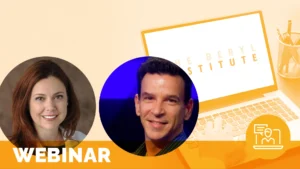What Patients Fear and Why We Have to Know

Colleen Sweeney, Director of Ambassador and Customer Services, Memorial Hospital and Health System
Ninety-six percent of all people have some fear about their healthcare. This session reveals the results of a three-year study on the 10 things that patients fear most and how we can substantially change the patient’s perception of care by asking just one question. Participants will identify ways to address patient fears that impact perceived outcomes. Truly patient centered care will start at the end of this session.
Related content
-
 Patient Family & Community Engagement
Patient Family & Community EngagementEscuchame: A Story of Patient Resilience
This article is a narrative following a patient’s experience through the American Healthcare system. This article is written by a second-year medical student. During this time the individual repeatedly engaged in different specialties of medicine such as neurology, neurosurgery, oncology, emergency medicine, gynecology, and primary care. This narrative demonstrates how certain issues such as healthcare
Learn more -
 Patient Family & Community Engagement | Quality & Clinical Excellence | Staff & Provider Engagement
Patient Family & Community Engagement | Quality & Clinical Excellence | Staff & Provider EngagementCompassion Rounds: Connecting with Patients and Families Beyond a Diagnosis
During a hospitalization, medical rounds address the patient’s physical needs but often fall short of addressing emotional and spiritual needs. Compassion rounds is an innovative program that focuses on a patient’s mind, body and spirit. It assists families in finding hope, strength, and peace. The goal is to empower patients and families to learn new
Learn more -
 Patient Family & Community Engagement | Staff & Provider Engagement
Patient Family & Community Engagement | Staff & Provider EngagementBuilding Cognitive-Based Compassion into Service Recovery Training
2pm ET / 1pm CT / 12pm MT / 11am PT – Traditional service recovery training often focuses on key principles and de-escalation techniques, leaving learners with theoretical knowledge but lacking practical implementation skills. In response to rising workplace violence and increasing complaints, we redesigned our service recovery training to incorporate cognitive-based compassion training. This
Learn more
